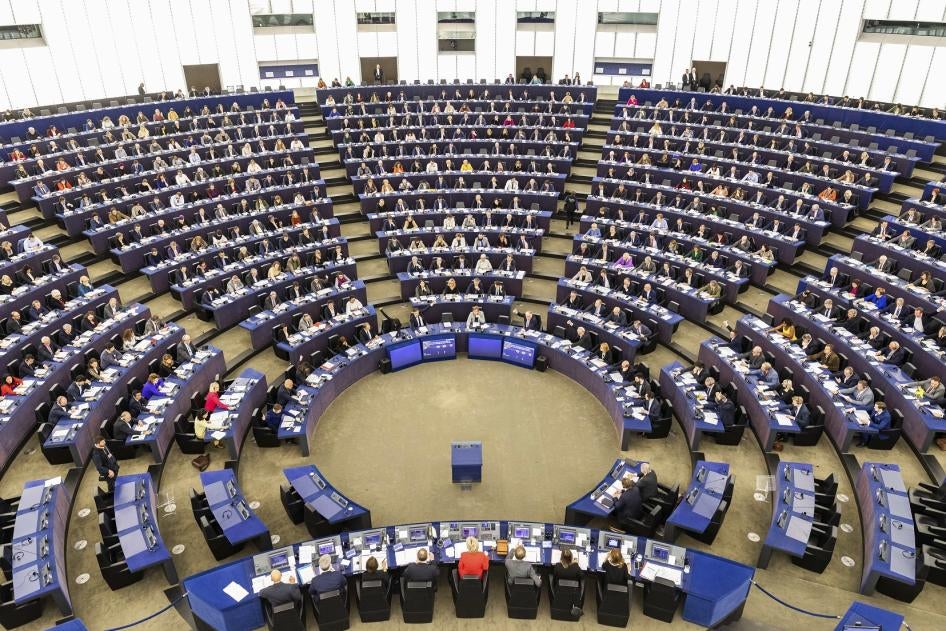On November 24, the European Parliament urged FIFA and Qatar to compensate widespread abuses that migrant workers suffered while building the 2022 World Cup infrastructure and making the games possible. In doing so, they joined migrant workers and their families, the global public, and a growing number of football associations, sponsors, political leaders, athletes, and human rights organizations and labor unions who have backed this call.
While acknowledging important labor reforms made by Qatar, the European Parliament’s resolution highlighted how an existing compensation scheme, operationalized only in 2020, failed to compensate widespread wage abuse since FIFA’s 2010 controversial selection of Qatar as World Cup hosts. Furthermore, Qatari authorities’ hasty attribution of thousands of migrant workers’ deaths to “natural causes” without proper investigations made their families ineligible for compensation.
In the debate preceding the vote, Parliamentarians hammered Qatar’s poor human rights record on labor rights and other human rights, including violations of freedom of expression, women’s rights, and LGBT people’s rights. The adopted text also condemned the participation of European companies in migrant workers’ rights violations during the preparation of the 2022 FIFA World Cup.
The European Parliament’s criticism follows repeated missed opportunities for Qatari authorities and FIFA to address and remedy human rights harms.
On November 1, Qatar’s labor minister explicitly rejected the call to remedy migrant workers who have suffered, hailing domestic reforms as sufficient; testifying at the European Parliament two weeks later, he again failed to publicly commit to compensation, albeit showing some openness to making the existing fund available retroactively.
FIFA has attracted further criticism by urging football associations to just “focus on football” rather than engage on “political or ideological battles,” and threatened on-field punishments for players engaging in even symbolic actions like wearing armbands in solidarity with LGBT rights. On the eve of the tournament, FIFA’s President Gianni Infantino delivered a bizarre news conference rife with “whataboutism” and gross inaccuracies about the reach and efficiency of existing compensation schemes for harmed workers and their families.
By now, it should be blatantly clear to FIFA and Qatar that their clumsy, bullying attempts to silence criticism are doomed to backfire. Instead, they could salvage their reputation and this World Cup’s legacy by committing to a comprehensive remedy fund to compensate thousands of families who lost their main breadwinner to make the tournament possible.
Will they finally do so?









